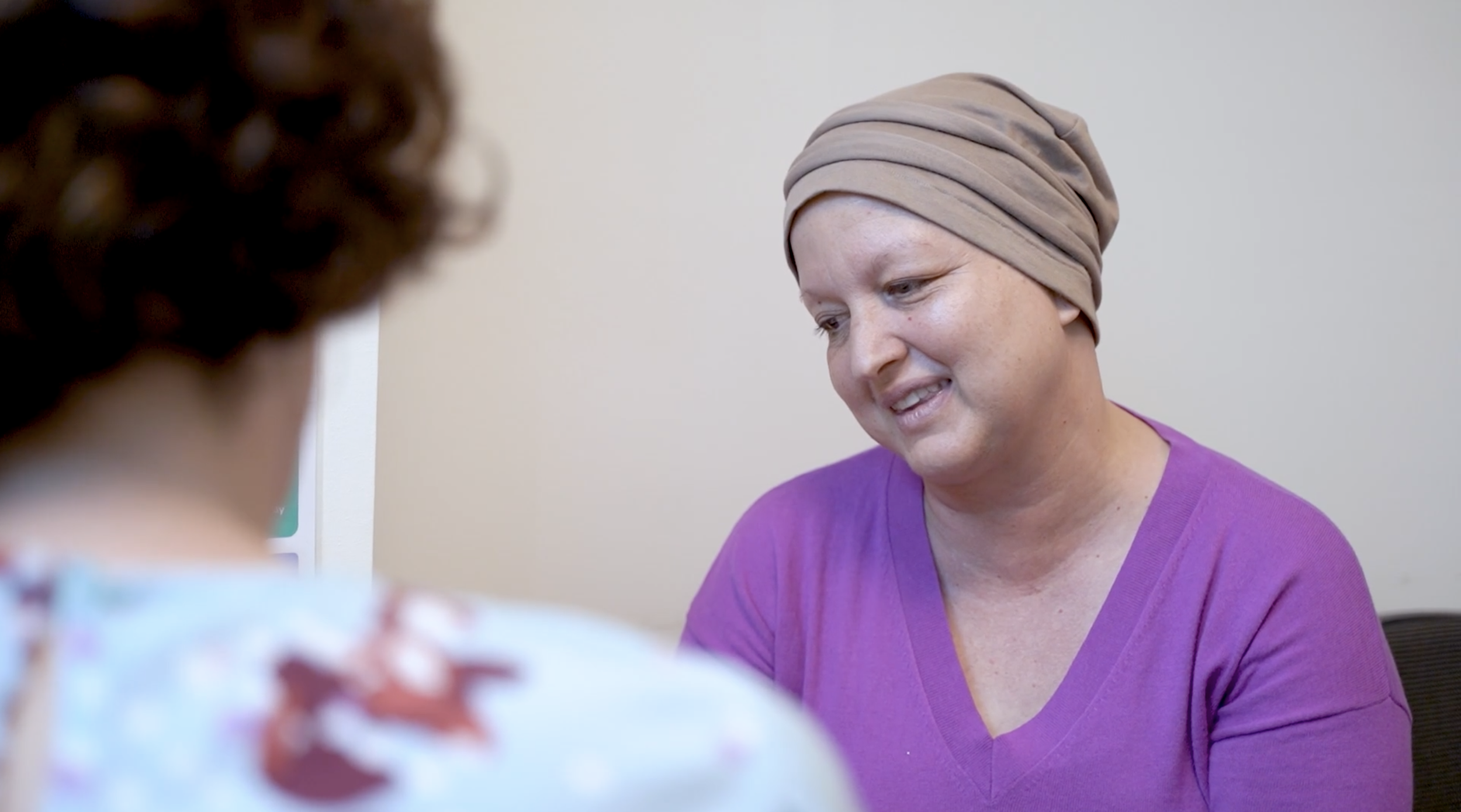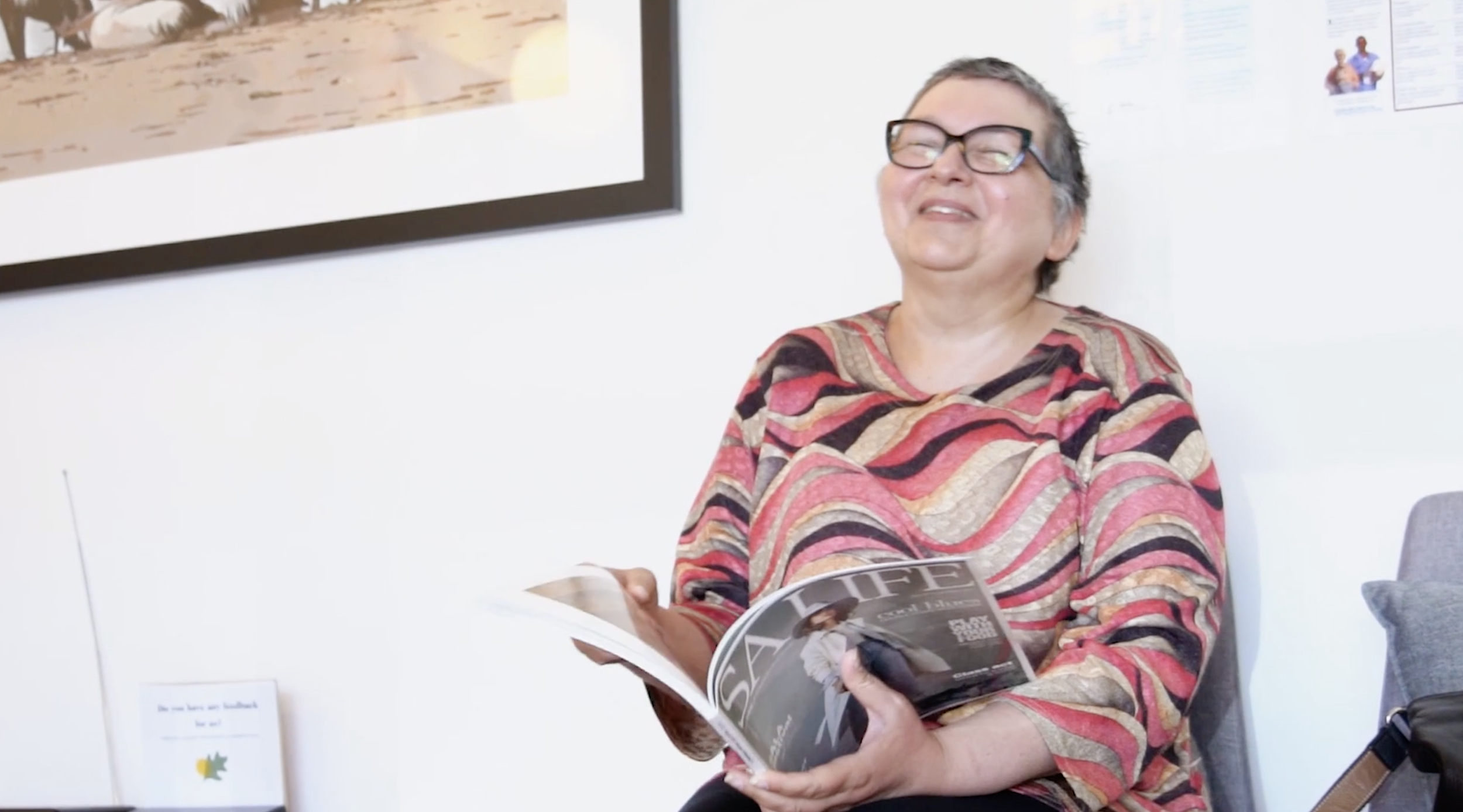Women's Continence and Pelvic Health Physio offers tailored support for incontinence, pelvic pain, and pelvic floor strength changes that can commonly occur as a result of cancer treatment.
Why might you need Women’s Continence and Pelvic Health Physiotherapy?
1.Pelvic Floor Rehabilitation
Cancer and its treatments can impact the pelvic floor muscles. Our physiotherapy assessment and interventions aim to provide women with an individualised pelvic floor exercise program aimed at targeting these specific muscles, improving strength, function and overall pelvic health.
2. Bladder & Bowel Continence Management
Incontinence is a common symptom of the pelvic floor not functioning at its best. Some cancer treatments can increase the risk or worsen the symptoms of bladder and bowel incontinence. While incontinence is common, it should never be considered normal. Physiotherapy management, including pelvic floor muscle exercises, is recommended as first line treatment for the management of incontinence symptoms. Our pelvic health physiotherapists can help with
Stress urinary incontinence - leaking urine when coughing, sneezing, running or lifting
Urge urinary incontinence - needing to use the bathroom very urgently with or without leaking urine
Faecal incontinence – accidental loss of stool and can be associated with urgency
Constipation – passing of hard, dry bowel motions that may be infrequent or difficult to pass
3. Pain Management
Physiotherapy can help with pelvic pain associated with gynaecological cancer and its treatments. Pelvic pain is any pain felt in the lower abdomen (below the belly button), pelvis (bladder, uterus, bowel), vaginal, vulva (including the clitoris) and rectum. This can also include pain with intercourse, which can impact up to 1 in 2 women across their lifetime. Our physiotherapist can help you understand the factors that may be contributing to your pain. They employ evidence-based techniques and tools to assist in alleviate pain and enhance your overall comfort.
4. Prolapse
Pelvic organ prolapse occurs when the bladder, bowel or uterus descend into the vagina. It causes a feeling of vaginal heaviness or dragging, or ‘feeling of a lump or bulge in the vagina’. Prolapse is common, with over 50% of women who have had a baby experiencing the symptoms. There is strong evidence to support pelvic floor exercises and lifestyle modifications to reduce the bother of prolapse symptoms and prevent the prolapse from worsening. Our physiotherapists can also advise on the correct ways to lift objects, open bowels and exercise while managing a prolapse.
Pessary fittings are unfortunately not part of this service. Our physio can guide you to where this can be accessed if after assessment is it thought this may assist in your care.
5. Pre-gynaecological surgery
The pelvic floor can be significantly impacted after cancer related gynaecological surgery. Seeing a pelvic health physiotherapist before surgery can aid in your recovery. They can help you to improve your bladder and bowel habits and start you on a pelvic floor muscle training program to minimal the effects of surgery. Following surgery, they can help support your return to the activities and exercise you enjoy.
Who needs to see a Pelvic Health Physiotherapist?
The pelvic floor muscles are the muscles that sit inside the pelvis and support the bladder, bowel and uterus. Up to 40% of people incorrectly perform pelvic floor exercises and this can often make their symptoms worse. By making an appointment to see our pelvic health physiotherapists, you can ensure you are correctly activating your pelvic floor and are on the right path to improving your symptoms.
What to expect at a Pelvic Health Physiotherapy appointment
We understand seeing a pelvic health physiotherapist and talking about your bladder, bowel and sexual health can feel overwhelming. Our team have extensive training in pelvic health and will ensure you feel supported to achieve your pelvic health goals. The physiotherapist will take time to understand your story and your symptoms. They will ask a range of questions about your bladder, bowel and sexual function, as well as other relevant lifestyle factors and past medical history. Bring along any previous scans or reports you feel may be relevant or important to your story.
The physiotherapist will then perform a physical examination including an assessment of your pelvic floor. There are several ways to assess your pelvic floor and understand how it is functioning. Non-invasive real-time ultrasound assessment is where an ultrasound probe is placed on the lower abdomen to view the bladder and pelvic floor. Digital vaginal or rectal assessments are other ways to assess the pelvic floor muscles. The physiotherapist will discuss the different options of assessing the pelvic floor with you at the first appointment.
The physiotherapist will then spend time explaining the findings and the factors impacting your symptoms. They will work with you to establish treatment goals and devise an evidence-based treatment plan using a range of strategies to achieve these goals.
Making an appointment
To make an appointment please call Lift on (08) 7231 8000.
Fees
Initial Visit: $220
Review (long): $170
Review (standard): $120
Rebates
A rebate of $60.35 from Medicare may apply. Alternatively, you may be able to claim through your private health insurer (under your extras cover).
Please ask the Lift staff for more details if you are unsure of what your out of pocket cost will be
Meet Georgia Clarkson, Specialist Pelvic Health Physiotherapist
Georgia is a titled Women’s, Men’s and Pelvic Health Physiotherapist, as awarded by the Australian Physiotherapy Association. She holds a Post Graduate Masters qualification in Continence and Women’s Health Physiotherapy from Curtin University (2017) in Western Australia. With over 10 years’ experience in the field, she is passionate about supporting individuals to improve their pelvic health.
After graduating in 2013 as an undergraduate physiotherapist, Georgia found her passion for pelvic health and returned to Curtin to complete her master’s degree. Hailing from Western Australia, Georgia has gained a wealth of experience working in hospitals and private practices across Perth. She has also held a teaching role at Curtin University, lecturing and supervising undergraduate and postgraduate students in pelvic health. Georgia and her family moved to Adelaide from Perth in 2024 and soon after she joined the Lift team, with a desire to support individuals throughout their oncology journey.
Georgia specialises in the management of bladder and bowel dysfunction and pelvic pain in both men and women, as well as the treatment of pelvic organ prolapse, female sexual dysfunction and supporting men pre and post prostate surgery. Georgia is dedicated to helping her patients achieve their pelvic health goals, helping to improve their quality of life and continue to do the things they enjoy.
Georgia understands talking about your pelvic health can be a sensitive topic. Her empathetic and caring nature creates a comfortable, safe and supportive environment for her patients. Georgia focuses on providing comprehensive assessments and individualised treatment plans that address the unique challenges faced by people living with cancer. Her approach combines evidence-based practices with a compassionate, patient-centered holistic care.
In her spare time Georgia and her family enjoy exploring Adelaide and South Australia, and she is always looking for local recommendations!






